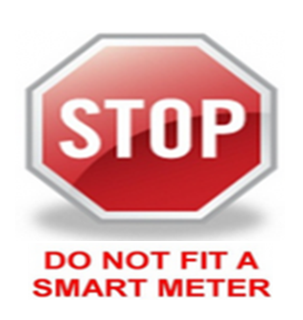Chicago’s aggressive push to metered water came to a grinding halt on 28th June 2019 after testing found spikes of brain-damaging lead in more than 1 in 5 homes sampled, following the installation of a digital water meter. The Department of Water Management’s website states that, “To protect our residents, and especially children, we are going to stop installing water meters until we identify a solution”.
Meters with automatic meter reading (AMR) technology – in other words, smart meters – had been installed.
Its FAQ webpage on water quality reveals that the indication is “the installation of water meters is the issue, not the replacement of water mains”. The webpage also made it clear that the new meters don’t have lead in them.
So what could possibly have gone wrong? Is it possible that pulsed radiofrequencies in proximity to legacy lead pipes, or brass fixtures containing lead, are not ideal bedmates? There is anecdotal evidence that high frequency fields produced by antennas can affect corrosion rates. Or is another cause behind the worrying levels of increased lead in Chicago homes’ water following the installation of a meter?
SSMA asks how does this bode for the rollout of smart water meters across Australia? Might the technology and deployment methods being used here also cause increased lead in drinking water? In addition to the community and the environment being exposed to more electro-smog as a result of hourly transmissions between smart water meters and network gateways, and due to emissions from back-haul transmissions between network gateways and towers, are we also to be exposed to higher levels of lead in our water?
Some water utilities in Australia have already rolled out digital water meters with others, lemming-like, commencing rollouts or, like Melbourne’s City West Water, South East Water and Yarra Valley Water, continuing to undertake trials.
SSMA recommends that, as a matter of urgency, you contact your water authority and make your views known about smart water meters.
South East Water, like a number of other water utilities, claims that “Customers have told us they support upgrading our network to digital meters to help both the water utilities and customers manage our water more sustainably”.
SSMA asks if these customers would be equally supportive of digital meters if they were aware of the possibility of increased lead in their drinking water, in addition to the ramifications resulting from another layer of electro-pollution?
Previous posts that SSMA has done on the rollout of smart water meters include:
Victoria’s Minister for Water evades questions about smart water meters
Look out Victorian water customers – your utility may be rolling out smart meters!
Water authorities rolling out wireless smart meters!
Smart water meter “trials” have commenced!





Pingback: Chicago smart water meter installations STOPPED after city finds spikes of brain-damaging lead in homes – Toms Blog on Life
Besides the lead issue, I wonder what sort of effect high frequencies have on the quality of the water. In the book ‘The Hidden Messages of Water’ by Masaru Emoto, which was apparently a New York Times bestseller a number of years ago, he showed via high-speed photography how directing specific thoughts on to water can alter crystal formation in frozen water. I suppose this is much like the technology that is being developed to enable disabled people to control computers with their mind? So if people can train their EEG brainwaves to do this, doesn’t it show the power of using different frequencies?
Here’s a link to a Channel 9 report on Melbourne digital water meters: https://www.facebook.com/YVWater/videos/415470605744922/
There is major problems with electric smart meters. I bet if they did a real survey they will find 90% of people will say no to water smart meters.
I believe I saw this survey on the internet and, of course, the questions asked were totally biased. Questions like, “Would you like to be alerted immediately to a possible water leak on your property?” Why not rephrase that question more honestly as, “Would you like to be alerted immediately to a possible water leak on your property despite such notification coming at a cost to your health and privacy?”
There were a few respondents to the survey who were able to see through the smoke and mirrors to realise that what was being proposed was smart water meters. Their responses could hardly be described as positive and supportive.
No doubt, the supportive responders were completely ignorant of the ramifications of these proposed new meters.
Read my lips, they are planning to disconnect your water supply remotely as punishment for breaching water restricitons or not paying your bill on time, or during droughts. Just as the electricity distributors started closing down power generating plants and crying poor that there wasn’t enough electricity to go around, hence the need to remotely switch off your electricity, courtesy of the smart meter you allowed them to install on your house, the water companies will claim there are not enough dams, or shift the blame and tell us we are using too much water, and then cut off your water supply to deal with their inaction on ensuring water supplies.
I am recently receiving a lot of communications from my energy company telling me to speak up if I need electricity for life support equipment. Read my lips again, they are preparing for a summer of inadequate electricity supply due to the closure of power generating plants and the reliance on green energy, and the only people who will have a steady electricity supply will be the people who have declared their life support equipment.